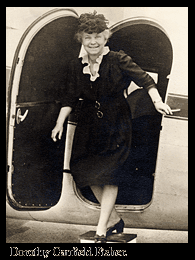


"Dorothy Canfield Fisher's temporary support for the sterilization of people with severe mental and physical handicaps stopped in the early 1930's, when people like my father, a researcher in the developing sciences of genetics and psychology, convinced her that the eugenicists had no good evidence for the simple genetic inheritance of these conditions," said Hixson in the letter. Though Fisher was drawn to the movement, says Hixson, her perspective soon shifted. "At that time, Dorothy Canfield Fisher was actively working to assure greater rights to contraception for women, and it was primarily on that basis that she was temporarily drawn into the eugenics movement." Before long, the entire family realizes that they are all blossoming into a new happiness."Knowledge of the larger context is important," said Vivian Hixson in a letter to the Vermont Board of Libraries. And Evangeline discovers her true calling in the business world, demonstrating both creativity and organizational skills, thriving on the daily challenge and mental stimulation. Yet Lester discovers his true calling at home, developing his own relaxed style of housekeeping, while discerning the individual needs and personalities of the children. When an accident puts Lester in a wheelchair and sends Evangeline out to work, their family and friends see it only as a tragedy. The Knapp children are affected by their parents' unhappiness, the youngest child acting out in frequent tantrums, and the two older children tense and nervous. Meanwhile, Evangeline Knapp is admired as an excellent housewife, yet the limited challenges of that life are driving her to perfectionism and boredom. As the family breadwinner, Lester Knapp drags himself reluctantly to his job each day, miserable in the harsh world of commerce and business, longing for a quiet life at home with his books. The Knapp family seems as though they ought to be happy, yet hidden frustrations are tearing them apart under the surface. Download cover art Download CD case insert The Home-Maker


 0 kommentar(er)
0 kommentar(er)
